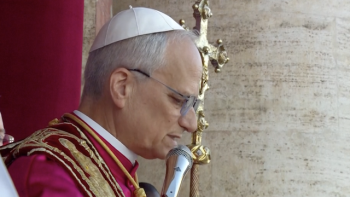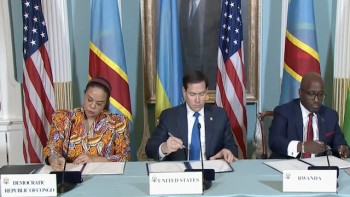Sudan dictator Omar Hassan Ahmad al-Bashir has been deposed. He was featured among AfroAmerica Network African ruthless dictators of 2018 (see AfroAmerica Network African Dictators Who Mattered In 2018: Congolese Joseph Kabila, Rwandan Paul Kagame, Ugandan Yoweri Museveni of Dec 27, 2018). Women played a major role in deposing one of the most feared and entrenched African dictators.
One of these women is Alaa Salah, who, wearing a memorable white clothes,led effective protest chants against President Omar al-Bashir in front of the military headquarters in the capital Khartoum. Alaa Salah said that her life was threatened since her picture went viral on social media. Alaa Salah, in tweets on her account, added that she will not bow down and that she was "very proud to take part in this revolution, My voice can not be suppressed." She was now been dubbed "Kandaka" or Nubian Queen.
Omar Hassan Ahmad al-Bashir, 74 was born in 1944. He took power, after ousting the unstable coalition government of Prime Minister Sadiq al-Mahdi, in a military coup on 30 June 1989. On 16 October 1993, he appointed himself President of Soudan. Since then, Soudanese people have been living a nighmare and the country has effectively or eventually split into three pieces: South Sudan, Darfour, and the rest.
On April 11, 2019, Omar Hassan Ahmad al-Bashir was removed by the military after months of anti-government protests against his three-decade rule.
The coup by the military followed contentious protests that faced fierce resistance from the Omar al-Bashir regime. The military coup leaders, under the command of Ahmed Awad Ibn Auf, deposed al-Bashir, dissolved the constitution, imposed a three-month state of emergency, and established the transitional body, known Transitional Military Council, to rule the country for two years.
Protest leaders, led by Omar Eldigair and Alaa Salah, rejected the decision by the military coup leaders and asked the return to civilian institutions, after a transitional government lead by a civilian Prime Minister. A day after the establishment of the Transitional Military Council, Ahmed Awad Ibn Auf stepped down due to the continued protests against his decision not to extradite Bashir to the International Criminal Court.
On Sunday, April 14, 2019, the coup-d-etat military called for consensus on independent Prime Minister, but vowed to keep the posts of interior and defence ministries in any transitional government. Following several weeks of protests, former Algerian dictator Abdelaziz Bouteflika resigned. He was replaced by President Abdelkader Bensalah, who has pledged to hold free elections on July 4, 2019. The protesters see him as too close to the former dictator, Mr Bouteflika and have called for his removal. Mr Bouteflika was considered by many as being a front for a clique of military leaders, politicians and businessmen, hold the real power and control the country.

















